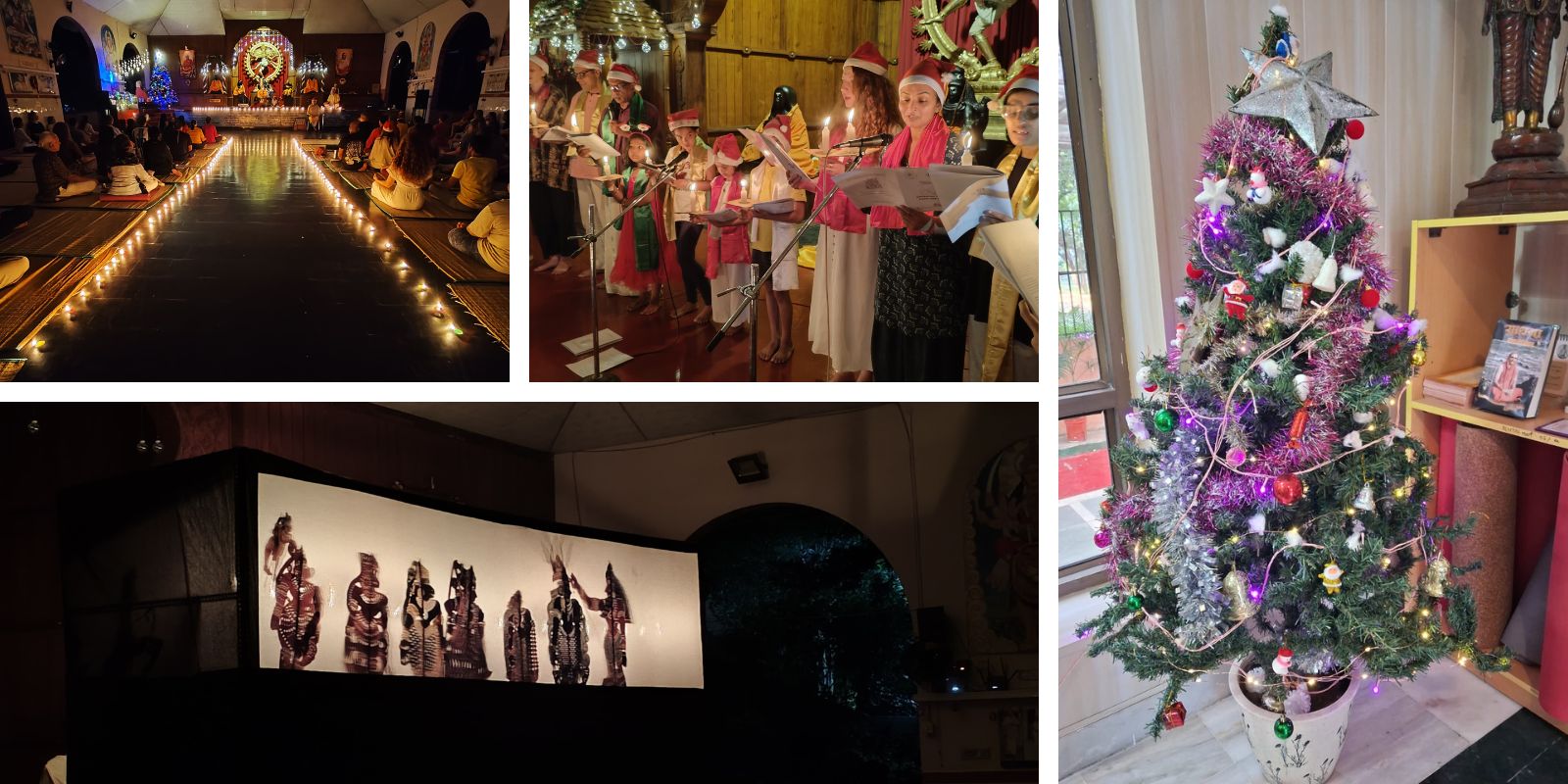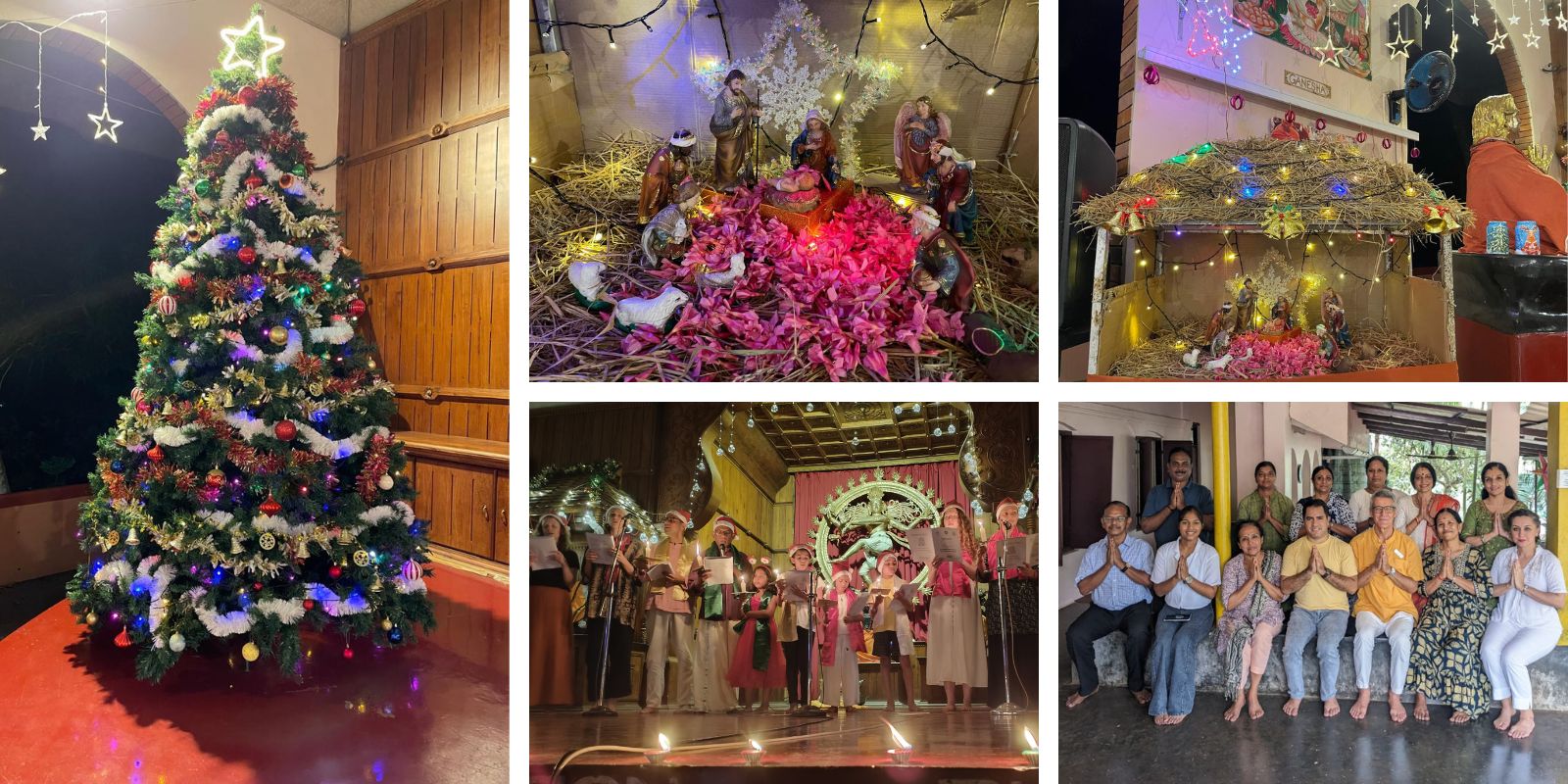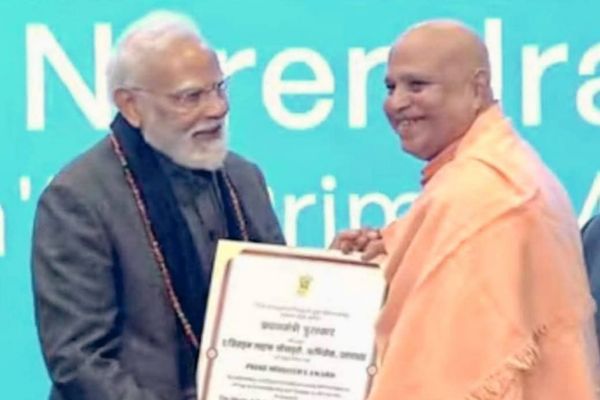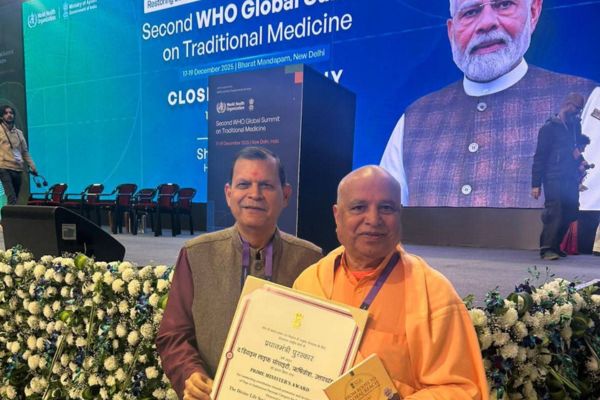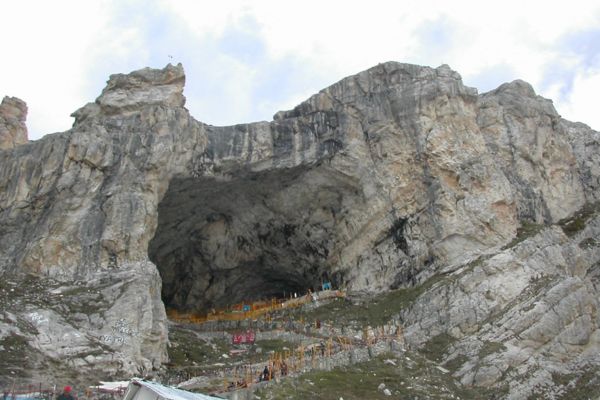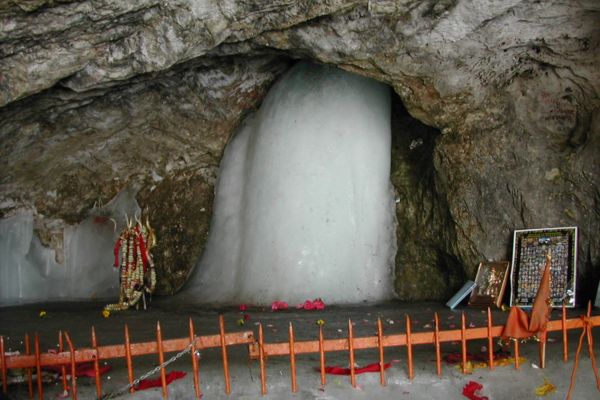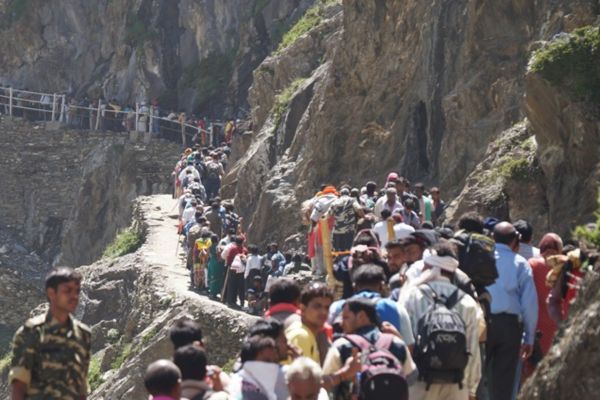
January 2026 | What is yoga?
Om Namah Sivaya
Blessed Self,
In the name of Master Swami Sivananda and our Guru Swami Vishnudevananda we wish you all a very happy and prosperous New Year with lots of sadhana for good health and peace of mind.
The new year looks brighter, having announced a 24-months long period of events for Swami Vishnudevananda’s Centenary Celebrations wherein we will remember his legacy of authentic teachings from the ancient scriptures and his numerous peace missions conducted around the world. As the world endures the turmoil of man-made conflicts, and many individuals face the challenge of mental health issues, it is inspiring for us to reflect on Swamiji’s mission and authentic practices. These practices continue to attract people in great numbers who are looking to find peace among the like-minded who are gathered there.
The first event of the new year and the Centenary Celebrations is the installation of Lord Ayyappa–the only God who brings all religions together– on January 9 at our Sivananda Tapaswini Ashram in Gudur, Andhra Pradesh. This was the life mission of Swami Vishnudevananda, to see Ayyappa installed, and it is finally taking place! We are humbled to see this beautiful temple built within the ashram, sponsored by a family from Australia, with others now joining to make the installation successful and to bring a very much needed temple to the area.
The next big event will be the recital of Rudram in the name of World Peace from February 23 to 25 at our Ashram in Neyyar Dam, Kerala, led by 45 well-versed priests and their entourage.
We recently sent out a newsletter announcing VishnuSwami@100 and asking for volunteers. This email received an overwhelming response with many from around the world contacting us to be a part of these events. This is the evidence that Swamiji’s teachings not only reached many places in need but also impacted many lives in a very positive way.
Our high season in south India is in full swing and all three ashrams are full of people enjoying the teachings and the care of very dedicated staff members. Please do join us.
We are immensely grateful for your continued support, allowing us to continue our sadhana and service to take Swamiji’s teachings and mission forward in the world. We wish you all great success with your practice and remaining healthy and peaceful in the upcoming new year.
May Master and Swamiji’s blessings be with you always.
Pranams,
Prahlada
Sivananda Yoga Vedanta Ashrams & Centres, India

Photo: Michael Yamashita, www.michaelyamashita.com
The new year seems to be a good time to pause and reflect. As practitioners of yoga, it is important to press pause from time to time to reconsider what yoga is. How are we practicing, teaching, sharing, expressing, living yoga? Remembering the shastras and healthily questioning our ideas about yoga. It’s easy to be influenced by how we see yoga portrayed in social media. Set and intention for 2026 to study one of the classical texts: the Bhagavad Gita, the Tattva Bodha of Adi Sankaracharya, or the Ramayana, a Sanskrit text or ‘smriti’ (remembered) text. There are many to choose from. In a first study you may not understand a text completely, but you will certainly take away new understanding that will reverberate through your yoga practice. Here’s to remembering!
In this issue of Sivananda Yoga Sandesha we look at ‘yoga’. We share Swami Sivananda’s words on the goal of yoga, from his book “Yoga Asanas” and also a research study which describes the deep impact of the sequence of asanas that Swami Sivananda describes in that book to the development of modern postural yoga practice. We share Swami Vishnudevananda’s word on the “Philosophy and Aim of Yoga”. We consider the habit of having a mobile phone in hand and holding a japa mala with the same hand. We discover the Amarnath cave temple in Jammu and Kashmir, and the arduous path to reach it. We learn simple Ayurvedic rituals to incorporate which have a deep impact on the yoga practice and we discover (if you haven’t already) the inspiring “Walk for Peace” currently taking place in the US, where a group of Buddhist monks and their Indian rescue dog are walking 2,300 miles for peace, unity, and compassion. It feels like just what we need right now. Happy New Year! As usual, please feel free to reach out to us with your thoughts and feedback at: [email protected]
Snapshot: December Events & Programmes
December snapshots include Christmas celebrations from our centres, an ashram visit by members of the Trivandrum Centre, and our world-famous 10-day holiday programme at the Neyyar Dam Ashram! This included an array or performances of Indian cultural arts: Kathakali, an ancient dance form; Kalaripayattu, the forerunner of all martial arts; Tholpavakoothu, shadow puppet theatre fire is used to create light; classical music with tabla, sitar and violin; as well as workshops on how to improve your memory, an introduction to Ayurveda, and how to make laddus. The programme also included a challenging night walk up Kalipara Hill to celebrate a Lok Ambika puja with over 100 guests, and Christmas Eve carols, candles, cake, and Father Christmas, who delivered gifts to all the guests.
News Item: Prime Minister’s Award for Outstanding Contribution Towards the Development and Promotion of Yoga
Prime Minister of India Sri Modi Ji presented the Prime Minister’s Award for Outstanding Contribution towards the Development and Promotion of Yoga to The Divine Life Society International Headquarters, Rishikesh. On behalf of the Sivananda Ashram, Rishikesh, the award was received by Swami Yogaswarupananda Ji Maharaj.
Links/Research: Premodern Yogasanas and Modern Postural Practice
This article, published in the Journal of Yoga Studies, reinforces the importance of the sequence of asanas outlined in Swami Sivananda’s book “Yoga Asanas” from 1934 and its influence on the modern practice of postures due to the international success of the Divine Life Society and the spread of Sivananda Yoga. A pdf of the article can be downloaded here:
https://journalofyogastudies.org/index.php/JoYS/article/view/JoYS.2023.V4.01
Spiritual Calendar
Jan 3 – Full Moon
Jan 14– Makara Sankranti
Jan 14 – Ekadasi
Jan 18 – New Moon
Jan 29 – Ekadasi
Upcoming Courses:
Learn, Practise & Grow with Us!
Teachers’ Training Course (TTC)
Jan 4 to Jan 31, 2026
Neyyar Dam, Kerala
Jan 11 to Feb 7, 2026
Madurai, Tamilnadu
Feb 15 to Mar 14, 2026
Madurai, Tamilnadu
For more details, click here
Advanced Teachers’ Training Course (ATTC)
Feb 8 to Mar 7, 2026,
Neyyar Dam, Kerala
For more details, click here
Hormone Yoga Immersion Programme
Jan 17 to Jan 24, 2026,
Neyyar Dam, Kerala
For more details, click here
Panchakarma Detoxification Programme (PDP)
Jan 28 to Feb 11, 2026,
Neyyardam, Kerala
Feb 20 to Mar 6, 2026,
Madurai, Tamilnadu
For more details, click here
Samagra Yoga Chikitsa (Comprehensive Yoga Healing Course)
Feb 15 to Mar 14, 2026,
Madurai, Tamilnadu
For more details, click here
Teachings Excerpt: “Yoga Asanas” by Swami Sivananda
Goraksha and Matsyendra knew well the Hatha-Vidya. Yogi Swatmarama learnt it from them by their favour. To those who wander about in the darkness of this science or branch of Yoga unable to obtain any knowledge of Hatha Yoga, the most merciful Swatmarama Yogi offers the light of Hatha-Vidya.
The goal of life is Self-realisation. All systems of Indian philosophy have one goal in view, the liberation of the soul through perfection.
Every man wants happiness. He shuns pain. No one teaches anyone to seek happiness. It is the innate, inherent Svabhava (nature) of everyone to seek happiness. Ananda is embodiment of one’s own nature.
Gratification of desires cannot bring in real peace of mind though the nerves are tickled for a second. Just as ghee when poured over the fire aggravates the fire, so also enjoyment intensifies a desire and makes the mind all the more restless. How can you expect real, lasting happiness from objects that are conditioned in time, space and causation and so are Vinasi (perishable) and Anitya (impermanent)?
The happiness that you get from sensual objects is fleeting and transitory. For a philosopher it is no happiness at all. It is like scratching the skin when you get itching. Sensual happiness is attended with severe exertion, sin, fear, pain, worry and several evils.
Amidst the din and boisterous bustle of worldly activities there come moments of tranquility and peace when the mind, for the time being, however short it may be, soars above the filthy worldly things and reflects on the higher problems of life—viz., Who am I? Whence? Where? Whither? Why of Universe? etc. The sincere enquirer becomes serious and extends his reflections. He begins to search and understand the truth.
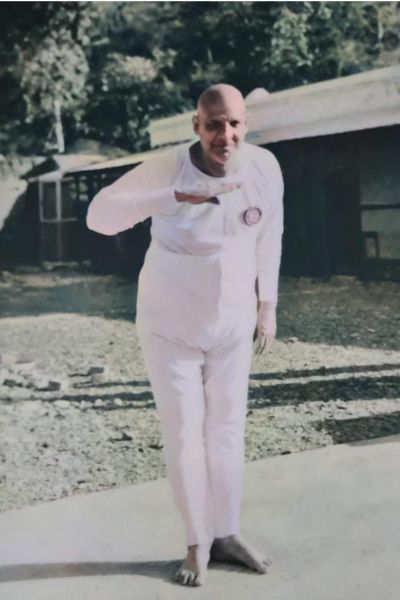
Discrimination dawns on him. He takes to the study of Atma-Jnana books, reflects, meditates, purifies his mind and eventually attains the highest knowledge of the Self. But the man whose mind is saturated with worldly Vasanas and cravings is quite heedless and is irresistibly carried away by the two currents of Raga-Dvesha and tossed about helplessly in the tumultuous Samsaric stream of birth and death with its concomitant evils.
The spiritual path is thorny, precipitous and nevertheless has been trodden by man of strong determination, undaunted spirit and indomitable energy. When once you make up your mind to tread the path, everything will become smooth and easy. You will have descent of Grace from the Lord. The whole spiritual world will back you up. The path will directly take you to realms of Infinite Bliss, Supreme Peace, Eternal Sunshine—realms where three kinds of Tapa, cares, worries, anxieties and fear, which torment the soul here dare not enter, where all distinctions of caste, creed and colour vanish altogether in the one embrace of Divine Love and where desires and cravings find their full satiety.
Teachings Excerpt: “Philosophy and Aim of Yoga” by Swami Vishnudevananada
The science of Yoga gives a practical and scientifically prepared method of finding truth in religion. As every science has its own method of investigation, so also the science of Yoga has its own method and declares that truth can be experienced. The truth can be experienced only when one transcends the senses and when the mind and intellect cease to function.
The Yogic teacher does not stop to prove his theory as he advances it, nor does he try to demonstrate to or argue with his class; his teaching is authoritative, as he himself experienced what was taught to him by his own teacher. The truth he teaches is an accepted truth and those who are ready for it will intuitively recognise it. On the other hand, no arguments or discussions can bring truth to those who are not yet ready or evolved enough to receive it.
The teacher knows that much of his teaching is but the planting of seeds and that, for every idea the student understands, there will be a hundred that will come into his conscious recognition only after his mind is ready to understand and accept it. This does not mean that every Yoga teacher insists that his students accept his teachings blindly. He knows that at firs the student cannot accept everything and so he insists that the student accept only that portion of the truth which he can prove to himself by his own experiments. The student is taught that before he can reach a deeper understanding, he must develop and unfold through service, devotion, and a moral life. As the student moves along the path of Yoga, he becomes aware of many new things that his teacher has already taught him theoretically. To a certain extent a student is advised to follow the teachings until he is able to experience truth within himself. In the beginning, he will profit by the advice and experience of the teachers who have traveled the path before him. For every man must learn through his own experiences. Walking along this path, he will see signs left behind as guideposts by those gone before him at each stage of the journey and in turn, he will leave his own road marks for those who follow behind. A real student will not follow blindly but will take advantage of these signs until he reaches the goal without losing his way through this rough and difficult path.
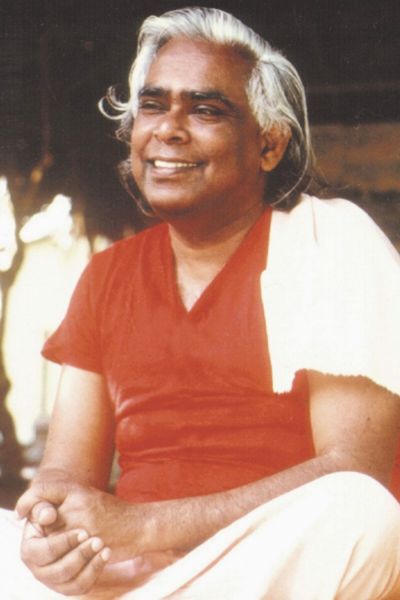
The following anecdote illustrates the point: Once a teacher in India went to a holy river for a purification bath with many of his devoted followers. As it is the custom to bring a small vessel to carry holy water from the sacred river after the bath, the saint had brought one. Arriving at the river’s sandy bank the saint dug a hole, buried the vessel, and piled a heap of sand over it as a landmark. His followers had not seen what he was doing but n noticed that he had made a pile of sand. Assuming this to be a part of the ceremony, they made similar heaps all over the riverbank. When the teacher finished his bath, he looked for his vessel. Instead of finding one heap he saw the vast riaver bank littered with similar heaps. Astonished, he asked the reason for all these sand heaps. Hearing that they had tried to imitate him, the saint was wonderstruck over the foolishness of his followers who imitated him blindly. Needless to say, it took considerable time to find the saint’s buried vessel.
Today we can see such followers in every religion, people who blindly follow their leaders without bothering to search for truth. Yoga philosophy and its teachers do not call for such blind faith, but ask the student to be patient and many things that appear vague at first will become clear as he progresses.
Practice & Teaching Tips: Which will you choose?
This video is inspired by a student in class this week who kept her phone beside her mat and texted throughout the class. While I don’t like to focus on the negative, I did notice something interesting. During asana practice she picked up the phone only during relaxation in-between. We ended the class with more subtle practices, pranayama and meditation. She made an attempt to do each of these things and then gave up and picked up her phone again. The phone in her hands seemed to provide comfort that was not present during her attempts at pranayama and meditation. She became absorbed in the phone in the same way that yogis hope to become absorbed in meditation.
I watched as her fingers performed their habitual movements across the screen of the phone and something struck me with a deeper clarity than it had before. The mala that we hold in our hands for japa practice may be a solution for anxious hands that reach for the phone.
We perform small, repetitive movements which, in time, feel comforting in their familiarity. If we manage to become absorbed, even for a short time, in the japa, we can begin to associate those movements with that peaceful absorption and connection.
The difference? If I need to say it, the phone shows us the horror of the world, asking our nervous system to react, again and again and again. The mala shows us the peace and beauty within. What do you choose for yourself in 2026?
Just a reminder that phones should not be brought into yoga classes, either by teachers or students. Every small notification, every ping, every vibration triggers your nervous system to react, and does the same for every other person in the room as well. Together we create the conditions for yoga to happen…or not.
I hope this video is helpful. With best wishes for your teaching and yoga practice! Pranams.
Ayurveda: Gentle Rituals to Incorporate in Yoga Practice
Yoga and Ayurveda were never meant to be lived separately. While yoga practices can deeply support body-mind balance, attaining this balance on a body burdened by toxicity, or improper nourishment becomes an obstacle to deeper yogic practice. From a yogic perspective, the body is an instrument through which consciousness is experienced, and Ayurveda helps keep this instrument balanced. Through mindful eating, seasonal living, self-care rituals, and herbal support, the body becomes sattvic. When the body is cared for the Ayurvedic way, the mind naturally settles, and yogic practices unfold with less effort and greater depth.
Ayurveda plays an essential role, teaching us how to keep the body clean, light, and well-functioning so that it may serve as a stable foundation for yogic practices. Through its understanding of digestion, metabolism, and daily rhythms, Ayurveda ensures that the body does not become a source of distraction or disturbance. The cultivation of strong agni, the prevention of ama (toxins), and the balancing of the doṣhas allow prana to move freely and support the nervous system. Without Ayurvedic wisdom, even sincere yoga practice can lead to imbalance. Ayurveda provides the necessary guidance to align diet, lifestyle, and daily routines with one’s constitution and environment. In doing so, it protects the practitioner from strain and supports longevity in yoga practice. Ayurveda can deepen your yoga practice with its rituals that can be seamlessly integrated into your yoga routine.
Ayurveda Practices for Yogic Lifestyle:
Begin the Day with Gentle Cleansing – Start the day with morning cleansing practices such as tongue scraping and oil pulling that help clear overnight buildup of ‘ama’, toxic undigested matter, and awaken digestion. These practices create lightness in the body, preparing you for a more fluid and focused yoga practice.

Hydrate the Body with Warm Water – Sipping warm water in the morning supports digestion, circulation, and vitality. This simple ritual gently awakens the system and encourages smoother energy flow during asana and pranayama practices.
Nourish Yourself with Abhyanga – Self-massage with warm herbal oils calms the nervous system and enhances circulation. Oil application deeply nourishes the body and calms down the vata energy to bring the body into a state of deep calm. Practiced before or after yoga, abhyanga nourishes the body and helps strengthen the body tissues.
Sip Herbal Infusions – Herbal teas are a source of prana. Herbal teas such as CCF tea (cumin, coriander, and fennel) tea, rose tea, and tulsi tea are powerful ways to support the flow of prana and strengthen the effects of yoga practice.
Adapt Your Practice to the Seasons – Ayurveda teaches us to move with nature. Warming, dynamic practices support bodily warmth in colder months, while slower, restorative postures help cool and replenish during warmer seasons.
Use Aromatic Support – Natural aromas such as sandalwood, rose, or citrus subtly influence mood and energy. Natural aromas are a direct source of pranic energy
Temple Showcase: Amarnath Temple, Jammu and Kashmir—A Mountain Holds a Mystical Secret
The road to Amarnath does not announce itself as sacred. It begins as a physical test, thin air, uneven paths, a body slowly learning its limits. Pilgrims walk quietly, breath becoming more important than conversation. Somewhere between fatigue and focus, the outer journey begins to turn inward.
The Amarnath Cave lies at over 3,800 meters in the Himalayas. It was not built but discovered. Unlike most temples, it has no clear date of construction, no royal patron whose name survives in stone. References to the cave appear as early as the 12th century in Kalhana’s Rajatarangini, suggesting that this place of worship has lived more in memory and practice than in architecture.
The ‘temple’ itself is the cave. Its form is raw and unadorned, with natural limestone walls, uneven stone floors, and water constantly seeping and dripping from above. There are no carved pillars, no sculpted towers. Only temporary wooden platforms and simple railings which appear during the pilgrimage season and are removed again when winter seals the valley. Impermanence is built into its design.
Inside, the air is cold, the smells of damp stone, burning ghee and camphor linger on the walls. Lamps flicker due to strong, cold wind that embraces Lord Shiva, as though bowing and surrendering itself as an offering to the lord; their light barely holding against the darkness, reminding us to search for the light within. Footsteps echo softly, as if the mountain is listening, and reminding you of your limited time on earth.
As bhaktas enter, they notice water falling drop by drop from the roof, slowly freezing into the ice Shivling, which grows and melts in rhythm with the lunar cycle. It appears for a short time each year, then disappears without ceremony, like a mystical being.
Tradition says that Shiva revealed the secret of immortality here. Yet nothing about the place suggests escape from death. On the contrary, everything points to change and reminds of this transient human birth. The ice does not last. The fragile body shivers in the cold. Your breath, the anchor of your soul, shortens. Yet what remains is true yoga.
Yoga, in its oldest and rawest sense, is not posture but union and unwavering attention, the discipline of staying present when comfort is stripped away. The walk to Amarnath enforces this without instructions. Each step that you take demands awareness. Each breath becomes deliberate, as if Mahesh, the Lord of Destruction, is slowly destroying your ego and reminding you of your true purpose.
We fear death because we cling to permanence. But Amarnath offers another view of life: that what appears and dissolves can still be sacred; that surrender is not loss but understanding. People leave the cave without spectacle, no triumph, no adambar (ostentation), no drama. Just each sadhaka and their quiet steadiness of mind, as if something unnecessary has been released from the body, mind, and soul. Once again you are back in the womb of sweet universe, sitting in silence, anchored: true yoga.
Amarnath Temple does not promise immortality or grand revelations and boons. It teaches us how to stand calmly before impermanence and, in doing so, live without fear, to live in yoga.
From the Community: Walk for Peace, USA
Follow the official Walk for Peace, a 2,300-mile journey on foot from Fort Worth, Texas to Washington, DC for peace, unity and compassion. Conducted by a group of Buddhist monks, and Aloka, the dog. At a time when the world doesn’t make sense, and when we see suffering and violence almost everywhere we look, this group of monks are creating a quiet movement of compassion and peace through the simple act of walking. Learn more here: https://dhammacetiya.com/walk-for-peace/
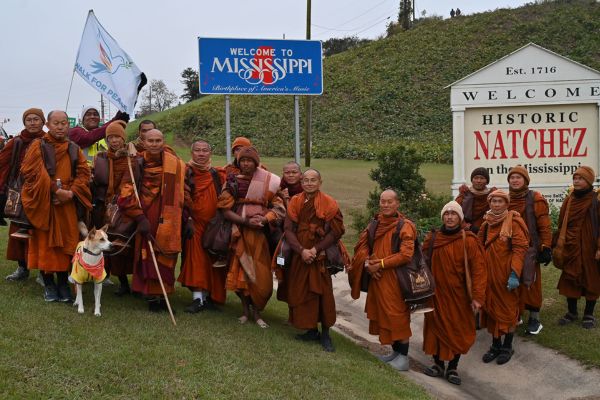
“Yoga is union with God. Yoga is union with all.”
-Swami Sivananda

